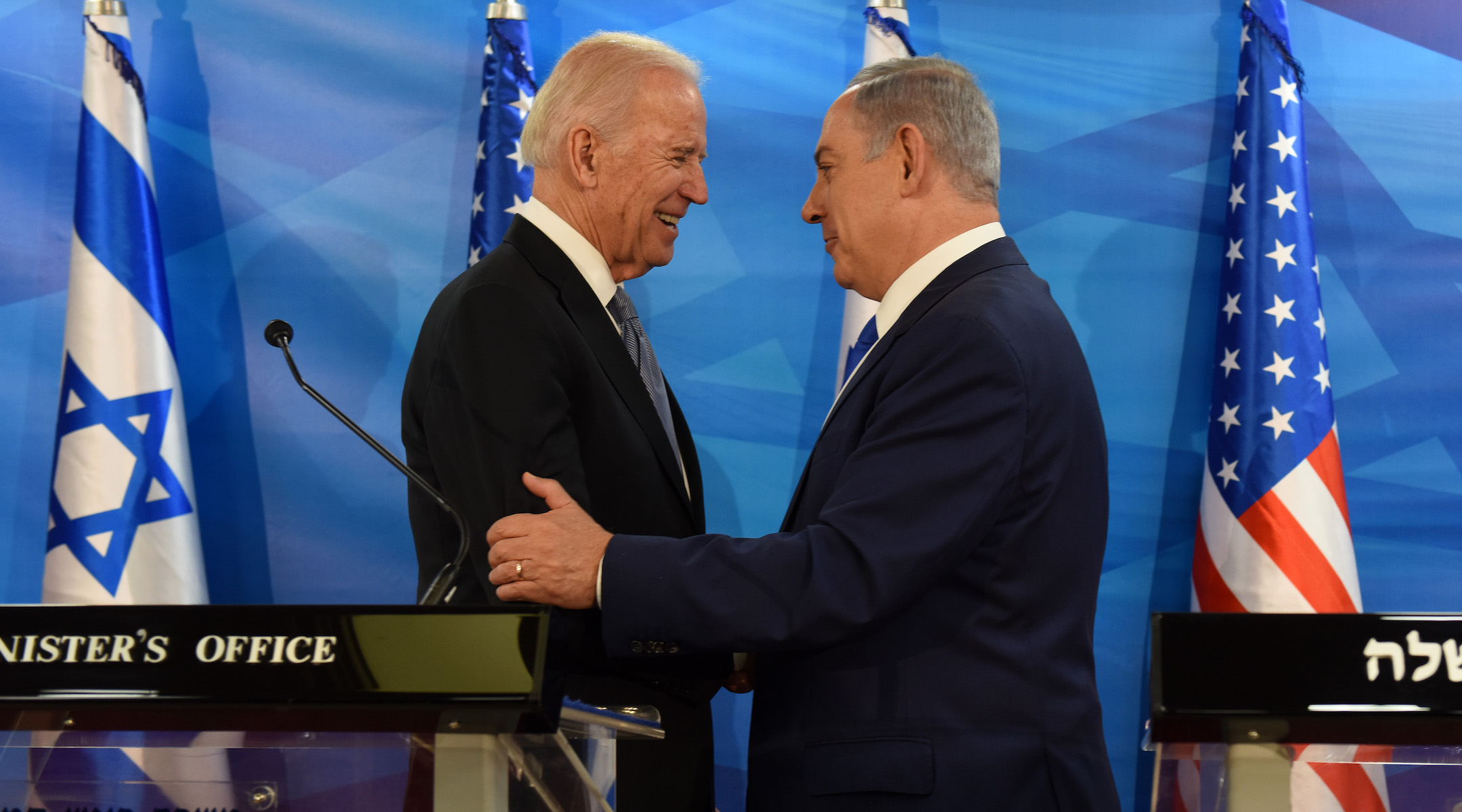UPDATE: This story has been updated with comment from the National Security Council.
WASHINGTON (JTA) — Less than a day after Prime Minister Benjamin Netanyahu paused his push to enact a far-reaching judicial overhaul, the U.S. ambassador to Israel said President Joe Biden would likely host Netanyahu in Washington after the Passover holiday, according to Israel’s Army Radio.
In a tweet Tuesday morning, Army Radio quoted Ambassador Tom Nides as saying that an invitation would reach Netanyahu “relatively soon, I assume after Passover.”
“There’s no question as to whether he’ll come and meet Biden,” Nides said, according to Army Radio. “They’ve been friends for 40 years.”
A report in Reuters, however, quoted an anonymous source as saying that no invitation had yet been extended. Nides later told The New York Times that no date had yet been set for the meeting.
“As Ambassador Nides said, there is no plan for PM Netanyahu to visit Washington,” a National Security Council spokeswoman told the Jewish Telegraphic Agency. “Israeli leaders have a long tradition of visiting Washington, and PM Netanyahu will likely visit at some point.”
Biden has criticized Netanyahu’s judicial overhaul which, if passed, would sap the Israeli Supreme Court of much of its power and influence. His administration has also criticized the speed of the legislative push. The turmoil in Israel over the judicial reforms rattled U.S.-Israel relations and is seen as responsible for the unusual delay in the U.S. president inviting a new Israeli prime minister for a summit. Netanyahu, who led Israel from 1996-1999 and then from 2009-2021, returned to office in December at the head of a coalition that includes far-right parties.
On Monday night, in the face of massive protests and internal dissent in his coalition, Netanyahu backed down from his insistence on passing the first major piece of the judicial overhaul before Passover, which starts next week. He said he would negotiate with the opposition about the reforms, and expected to return to the legislative process as soon as May.
The two major reforms, which are now paused, would give the governing coalition the final say in the selection of some judges, and would essentially eliminate the Supreme Court’s ability to review Knesset laws. The courts are seen as a bulwark protecting vulnerable populations, including women, the non-Orthodox, Arabs and the LGBTQ community.
The Biden administration had made its unhappiness with the reforms known in ways that are unusually public in the history of U.S.-Israel relations, withy Biden himself commenting on the issue. Just an hour prior to Netanyahu’s concession, John Kirby, the spokesman for the National Security Council, spent 30 minutes on the phone with reporters saying the matter was an urgent one for Netanyahu to address.
Kirby said the Biden administration was concerned especially by Netanyahu’s recent firing of his defense minister, Yoav Gallant, who had joined calls for a pause on the legislation.
“We remain deeply concerned by recent developments, which further underscored our view [of] the urgent need for compromise,” Kirby said on the call.
Kirby was peppered with reporters by questions about whether Netanyahu government officials would be welcome at a Summit for Democracy the Biden administration is convening this week. He was noncommittal. The summit is being held live and virtually.
JTA has documented Jewish history in real-time for over a century. Keep our journalism strong by joining us in supporting independent, award-winning reporting.






